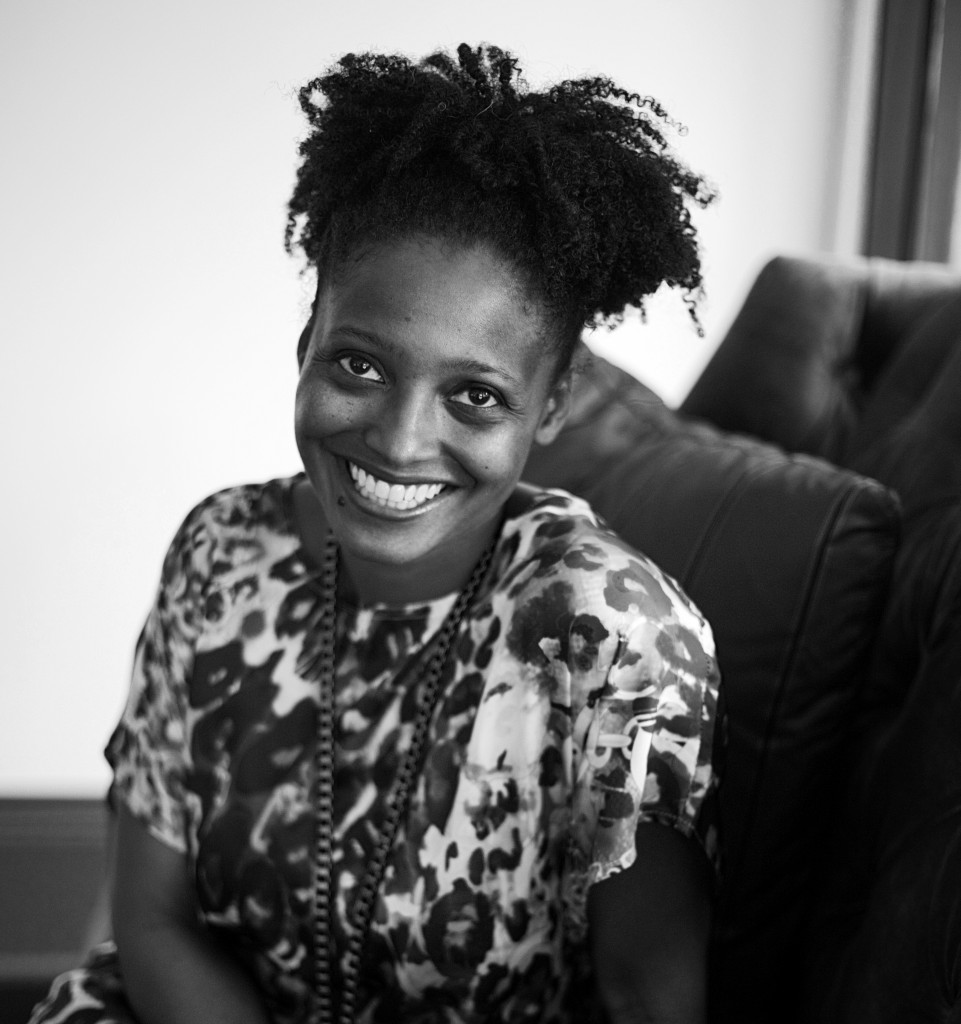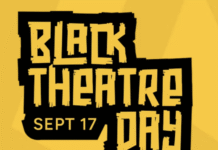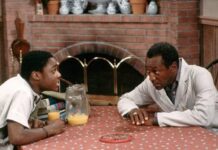
(Photo Credit: Marlene Lillian)
Tracy K. Smith is one of modern literature’s leading African American poets and creative writing instructors. In 2012, the Falmouth, MA native was awarded the Pulitzer Prize for her imaginative 2011 collection, Life on Mars.
The poetry collection was an introverted Smith’s cathartic process. Smith used verse, multiple pop cultural references and descriptive imagery to address her father’s 2008 death, womanhood, motherhood, spirituality and her attraction to 1960s and ’70-era science fiction films.
“A lot of this book came out of grief for my father, wanting to imagine a proper afterlife and sustain that closeness with him,” says Smith. The first poems I set out to write broke that silence. I was thinking about the universe as the American space. I always think about things I read in the news or NPR. Being out there felt like an imagined place. It kind of startled me at first, but I didn’t want to resist it.”
The frizzy-haired, soft spoken Smith, who was visiting Emory University for a two-day residency, curated the liberal arts college’s Feminist Founders’ Readings this year. The current professor of creative writing at Princeton University also discussed poetry in a conversation with U.S. Poet Laureate Natasha Tretheway and in a colloquium with Emory’s creative writing students.
“I push myself to try to engage with real events as much as possible,” says Smith to the students. “Many things can be worked out and worked through. It’s about returning to a point in time that I’ve experienced and experiencing the world in a transformative way. The only way I can get stuff down on paper is to imagine small details. If I can do that, then it might shine light on some larger parallel.”
After winning the Pulitzer Prize, Smith’s visibility increased in both the media and literary community. The poet became overwhelmed at times. However, she’s grateful and elated for the recognition. The pinnacle moment, Smith says, paved the gateway for her to set new boundaries for her personal life. “My day to day really changed,” Smith recalls. “I thought if I talked about my process one more time, I’d never write again. It brought more activity into my life. I learned how to make space and say no,” adds a slightly humored Smith.
The self-proclaimed news junkie became NPR’s very first NewsPoet. The conceptual Essence Literary Award-winning artist was able to take news headlines and turn them into poems. She admits to envying some journalists because of the immediacy of delivering information. Smith says of the creative process, “When I’m writing, there are a couple of things happening. The conscious mind is never in control. If the material is strange or ambitious, I need it even more,” she says.
Some of Smith’s favorite poems to write are when she can personify obscure characters. “It can be frightening to write in another voice,” says Smith. “When I write [persona poems], it’s a story I’m intrigued by and want to learn more about. I push past the initial events or reaction. I educate myself about the conditions of their experiences. Opinions are not helpful when you try to make art. It’s a huge risk, but I challenge myself to extend that compassion.”
Smith, the meticulous author behind the award-winning collections The Body’s Question and Duende, likes using epigraphs at the beginning of her poems. The former Stanford University Stegner Fellow does not publish individual poems nor does she allow people to read her drafts. She takes pride in revising numerous times before her work goes to print.
Sometimes, Smith will jot her ideas down and just leave them. If she doesn’t have a concept in mind, she gives herself encouragement. “I just say I’m making excuses for myself, and I’m delaying doing the hard part,” she says. Critical fanfare and multiple accolades, Smith adds, doesn’t impact the quality of her work. “Forget about the reader. I don’t think every poem is perfect. If I’m worried about those other voices, I’d be silenced,” says Smith.
The graduate of both Harvard University and Columbia University warns students at the colloquium that poems rarely come out fully developed. “You know when things really get going. We all make the necessary missteps in the beginning. I’m very patient. I don’t like rejection. Putting things into language makes it real,” says Smith.
Seated at the head of a wooden conference table, Smith suggests students participate in writing workshops. “They’re spaces where egos can’t be present. You learn about reading beyond your own tastes and connecting with other people’s work. [Workshops] teach you not to be competitive and greedy. Find the voices that are helpful to you,” says Smith.
When Smith educates her Princeton students, she likes to give her pupils a series of exercises to strengthen their approach to writing. She offers suggested course readings but coerces them to let their imaginations guide them. “I get students to read as much as they can. Just start. Say something. Fear is a good sign that you’re onto something you should pursue,” says Smith.
Even with best-selling books, multiple accolades and a career in higher education, Smith likes to focus on the future. She doesn’t like to dwell on past successes or attempt at revising published works. “I’m grateful for my poems,” says Smith. “We lived together beautifully, but they have their own life. My poems end up having public life. By the time that happens, the chief objective has been served.”
This post was written by Christopher A. Daniel, pop cultural critic and music editor for The Burton Wire. He is also a contributing writer for Urban Lux Magazine and Blues & Soul Magazine. Follow Christopher @Journalistorian on Twitter.
Like The Burton Wire on Facebook. Follow us on Twitter @TheBurtonWire.








